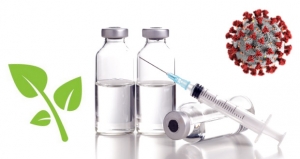Vaccines, Phytonutrients and Coronavirus
As the world’s hopes for the end of the COVID-19 pandemic rely on the new vaccines there are still multiple issues regarding long-term safety of the experimental genetic-based vaccine technology. Currently, between the two available vaccines, from Pfizer/BioNTech and the other from Moderna, both are based on the introduction of a viral messenger RNA (mRNA) into the cells. These vaccines use a synthetic version of the mRNA which a virus uses to build its infectious proteins. The human cells read RNA as instructions to build those virus proteins which then are detected by the immune system and trigger an immune response against the virus. On the other hand, the DNA vaccines (some of which are still in the clinical trials) use weakened viruses, e.g. the modified chimpanzee adenovirus, to transport the coronavirus genes into the human cells, and stimulate the immune response. The vaccines from Johnsons & Johnson, the University of Oxford, and Russia’s Sputnik vaccine are some examples of adenovirus-based DNA vaccines.
